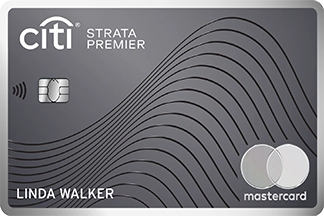- myFICO® Forums
- FICO Scoring and Other Credit Topics
- Understanding FICO® Scoring
- Re: Relative Importance of Authorized User Account...
- Subscribe to RSS Feed
- Mark Topic as New
- Mark Topic as Read
- Float this Topic for Current User
- Bookmark
- Subscribe
- Mute
- Printer Friendly Page
Relative Importance of Authorized User Accounts Versus Personal Accounts.
Is your credit card giving you the perks you want?
Browse credit cards from a variety of issuers to see if there's a better card for you.
- Mark as New
- Bookmark
- Subscribe
- Mute
- Subscribe to RSS Feed
- Permalink
- Report Inappropriate Content
Relative Importance of Authorized User Accounts Versus Personal Accounts.
I am trying to understand the relative importantance of personal accounts vs. personal accounts towards FICO scores.
Using the following profile:
Two personal cards:
- oldest has a $30,000 limit is 10 years old and has a balance of $18,000.
- newest has a $20,000 limit, is 1 year old and has a $0 balance.
Two AU cards (from different people in case that matters):
- oldest has a $5,000 limit and a balance of $300.
- newest has a $10,000 limit and a balance of $9,000.
Given one had $5,000 to pay down any balance, what would the best allocation be:
- pay all of it on the personal card dropping the balance to $13,000 and the utilization to 43%
- pay all of it on the AU card dropping the balance to $4,000 and the utilization to 40%.
- split it to 50/50 and dropping the balance on both, getting the AU card to 65% and the personal card to 52%.
- split it $1,500 to the AU account and $3,500 to the personal account bring the AU card to 75% and the personal card 48%.
- spending the $5,000 on whiskey and food. :-)
- Something else.
- Mark as New
- Bookmark
- Subscribe
- Mute
- Subscribe to RSS Feed
- Permalink
- Report Inappropriate Content
Re: Relative Importance of Authorized User Accounts Versus Personal Accounts.
@ThomasJNewton wrote:I am trying to understand the relative importantance of personal accounts vs. personal accounts towards FICO scores.
Using the following profile:
Two personal cards:
- oldest has a $30,000 limit is 10 years old and has a balance of $18,000.
- newest has a $20,000 limit, is 1 year old and has a $0 balance.
Two AU cards (from different people in case that matters):
- oldest has a $5,000 limit and a balance of $300.
- newest has a $10,000 limit and a balance of $9,000.
Given one had $5,000 to pay down any balance, what would the best allocation be:
- pay all of it on the personal card dropping the balance to $13,000 and the utilization to 43%
- pay all of it on the AU card dropping the balance to $4,000 and the utilization to 40%.
- split it to 50/50 and dropping the balance on both, getting the AU card to 65% and the personal card to 52%.
- split it $1,500 to the AU account and $3,500 to the personal account bring the AU card to 75% and the personal card 48%.
- spending the $5,000 on whiskey and food. :-)
- Something else.
All I can say when looking at the fact pattern you've provided, and assuming that the $9k balance on the AU card is from the primary cardholder, I would say that you should do these things:
1. Pay the $5k towards the personal card with the $30k limit
2. Get taken off of the 2nd AU card
3. Then have your whiskey and, if necessary, food.































Total revolving limits 568220 (504020 reporting) FICO 8: EQ 689 TU 691 EX 682
- Mark as New
- Bookmark
- Subscribe
- Mute
- Subscribe to RSS Feed
- Permalink
- Report Inappropriate Content
Re: Relative Importance of Authorized User Accounts Versus Personal Accounts.
@SouthJamaica wrote:2. Get taken off of the 2nd AU card
Is the $9k AU balance yours? In any case SouthJamaica's advice to remove yourself as an AU seems best from a scoring perspective.
AoOA: closed: 40 years, open: 30 years; AAoA: 14 years
Amex Gold, Amex Blue, Amex ED, Amex Delta Blue, Amex Hilton Surpass, BoA Platinum Plus, Chase Freedom Unlimited, Chase Amazon, Chase CSP, Chase United Explorer, Citi AA, Sync Lowes, total CL 203k
- Mark as New
- Bookmark
- Subscribe
- Mute
- Subscribe to RSS Feed
- Permalink
- Report Inappropriate Content
Re: Relative Importance of Authorized User Accounts Versus Personal Accounts.
Sorry, in rereading my post, I realized I was not clear that this is somewhat hypothetical, but based on situations with which friends and I have dealt. What I am really trying to understand is the relative importance of authorized user accounts vs. personal accounts. I should also have made clear that being removed from the Authorized User accounts is not an option (as the point of the question is to understand how this things affect one's score).
- Mark as New
- Bookmark
- Subscribe
- Mute
- Subscribe to RSS Feed
- Permalink
- Report Inappropriate Content
Re: Relative Importance of Authorized User Accounts Versus Personal Accounts.
It depends on what versions of Fico you are dealing with. Utilization on AU cards affects your Fico mortgage scores but not Your Fico 8 or Fico 9 scores. Also, balances on AU cards count against you in # of accounts with balance metric with the older Mortgage Fico. It is preferrable to report a small balance on one primary card and one AU card all Fico models considered.
You want to get your personal card under 49%. Do the split - if you owe money on the AU card.
P.S. I don't recall a mention of age on the AU cards.
Fico 8: .......EQ 850 TU 850 EX 850
Fico 4 .....:. EQ 809 TU 823 EX 830 EX Fico 98: 842
Fico 8 BC:. EQ 892 TU 900 EX 900
Fico 8 AU:. EQ 887 TU 897 EX 899
Fico 4 BC:. EQ 826 TU 858, EX Fico 98 BC: 870
Fico 4 AU:. EQ 831 TU 872, EX Fico 98 AU: 861
VS 3.0:...... EQ 835 TU 835 EX 835
CBIS: ........EQ LN Auto 940 EQ LN Home 870 TU Auto 902 TU Home 950
- Mark as New
- Bookmark
- Subscribe
- Mute
- Subscribe to RSS Feed
- Permalink
- Report Inappropriate Content
Re: Relative Importance of Authorized User Accounts Versus Personal Accounts.
@Thomas_Thumb wrote:It depends on what versions of Fico you are dealing with. Utilization on AU cards affects your Fico mortgage scores but not Your Fico 8 or Fico 9 scores. Also, balances on AU cards count against you in # of accounts with balance metric with the older Mortgage Fico. It is preferrable to report a small balance on one primary card and one AU card all Fico models considered.
Not looking for a mortgage anytime soon, so I guess FICO 8 and FICO 9 only, and that was the information I was most trying to find. Thanks @Thomas_Thumb!
You want to get your personal card under 49%. Do the split - if you owe money on the AU card.
As I mentioned, it is a bit hypothetical, but both cards will have the statement balances paid off (so no interest) and probably close zero on both before the next statement closes. I just needed to understand how much more important my personal cards were to my score for card issuing banks when they consider giving me a new card.
P.S. I don't recall a mention of age on the AU cards.
You are right, I forgot to mention it. The older AU card is 8 years and the new one is 1.5 years. The newer one has alternated between reporting $0 and something higher, as it depends on when some last minute charges hit. Mostly curious about this whole thing as I am planning to get a Capital One Venture X card and while I was pre-approved, it was suggested that I wait until my older card reported a lower balance. I am in no rush, and I am perfectly happy to wait, but I wanted to understand the difference between how the balances are treated. I would also like to understand if the ages of the AU accounts are included in the real Average Age of Accounts? Adding a third account with just my two personal cards would drop my AAoA a lot. If all four cards are considered, adding another card hurts less.
Finally, I would love to understand which is more important, AAoA or total amount of credit and utilization? Adding a Venture X would likely mean adding at least $10,000 to my available credit. Would that outweigh the drop in my AAoA?
- Mark as New
- Bookmark
- Subscribe
- Mute
- Subscribe to RSS Feed
- Permalink
- Report Inappropriate Content
Re: Relative Importance of Authorized User Accounts Versus Personal Accounts.
@ThomasJNewton wrote:.....
Finally, I would love to understand which is more important, AAoA or total amount of credit and utilization? Adding a Venture X would likely mean adding at least $10,000 to my available credit. Would that outweigh the drop in my AAoA?
I don't think that question can be answered, since there are too many variables. But I think it's safe to say that adding a new account will usually cost you points, despite the lowering of your aggregate utilization, in the short run.































Total revolving limits 568220 (504020 reporting) FICO 8: EQ 689 TU 691 EX 682
- Mark as New
- Bookmark
- Subscribe
- Mute
- Subscribe to RSS Feed
- Permalink
- Report Inappropriate Content
Re: Relative Importance of Authorized User Accounts Versus Personal Accounts.
@ThomasJNewton wrote:
@Thomas_Thumb wrote:It depends on what versions of Fico you are dealing with. Utilization on AU cards affects your Fico mortgage scores but not Your Fico 8 or Fico 9 scores. Also, balances on AU cards count against you in # of accounts with balance metric with the older Mortgage Fico. It is preferrable to report a small balance on one primary card and one AU card all Fico models considered.
Not looking for a mortgage anytime soon, so I guess FICO 8 and FICO 9 only, and that was the information I was most trying to find. Thanks @Thomas_Thumb!
You want to get your personal card under 49%. Do the split - if you owe money on the AU card.
As I mentioned, it is a bit hypothetical, but both cards will have the statement balances paid off (so no interest) and probably close zero on both before the next statement closes. I just needed to understand how much more important my personal cards were to my score for card issuing banks when they consider giving me a new card.
P.S. I don't recall a mention of age on the AU cards.
You are right, I forgot to mention it. The older AU card is 8 years and the new one is 1.5 years. The newer one has alternated between reporting $0 and something higher, as it depends on when some last minute charges hit. Mostly curious about this whole thing as I am planning to get a Capital One Venture X card and while I was pre-approved, it was suggested that I wait until my older card reported a lower balance. I am in no rush, and I am perfectly happy to wait, but I wanted to understand the difference between how the balances are treated. I would also like to understand if the ages of the AU accounts are included in the real Average Age of Accounts? Adding a third account with just my two personal cards would drop my AAoA a lot. If all four cards are considered, adding another card hurts less.
Finally, I would love to understand which is more important, AAoA or total amount of credit and utilization? Adding a Venture X would likely mean adding at least $10,000 to my available credit. Would that outweigh the drop in my AAoA?
Moderate to large changes in utilization have a more pronounced change on score than changes in AAoA. Adding a new account drops revolving AoYA to 0 months and that can drop score 15 to 25 points if revolving AoYA was previously above 12 months. The associated drop in AAoA may have no impact on score if you don't cross a threshold.
Increasing aggregate credit limit has no direct positive impact on score. You can have 850 scores with $20k in total CL. The key point is statement balances need to be low relative to CL.
Higher AG CL does provide more spend flexibility. I suggest building AG UT to the point where it is 20x average monthly CC spend. So, if typical cc spend is $4k that would translate to $80k in AG CL. I also recommend having atleast 3 to personal cards.
Fico 8: .......EQ 850 TU 850 EX 850
Fico 4 .....:. EQ 809 TU 823 EX 830 EX Fico 98: 842
Fico 8 BC:. EQ 892 TU 900 EX 900
Fico 8 AU:. EQ 887 TU 897 EX 899
Fico 4 BC:. EQ 826 TU 858, EX Fico 98 BC: 870
Fico 4 AU:. EQ 831 TU 872, EX Fico 98 AU: 861
VS 3.0:...... EQ 835 TU 835 EX 835
CBIS: ........EQ LN Auto 940 EQ LN Home 870 TU Auto 902 TU Home 950
- Mark as New
- Bookmark
- Subscribe
- Mute
- Subscribe to RSS Feed
- Permalink
- Report Inappropriate Content
Re: Relative Importance of Authorized User Accounts Versus Personal Accounts.
@Thomas_Thumb wrote:
You want to get your personal card under 49%. Do the split - if you owe money on the AU card.
The newer AU card should be under 48% (maybe lower, I have to check - it was paid off and then new charges were added just do not know which of the new charges will have posted by statement close). My personal card should be under 48% as well, and the remaining AU card should now be at under 5%.